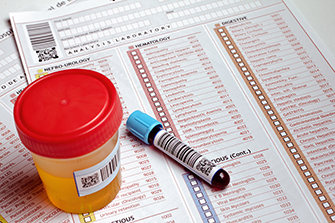Cocaine is an extremely addictive Schedule II controlled substance. While its high doesn’t last long, its effects can remain for a very long time. Keep reading to find out the answer to “how long does cocaine stay in your system?”, including factors, methods of testing, and more about cocaine itself.
How Long Does Cocaine Stay in Your System?: The Factors
When finding out how long cocaine stays in your system, cocaine can be detected by measuring the levels of Benzoylecgonine. Cocaine also has a reputation for being the drug that stays in your system in the least amount of time. However, this isn’t always the case and everybody is different. There are many factors that can determine exactly how long cocaine might stay in your system.
- Amount and potency of drug. The more cocaine you use, the more benzoylecgonine metabolite remains and can be detected. In addition, the purity of the cocaine used can also affect these levels. The purer the cocaine, the higher the levels and, therefore, the easier to detect.
- Weight. Benzoylecgonine can be stored in fatty tissue. As such, the more body fat an individual has, the longer it can remain detected in their system.
- Alcohol use. Alcohol and cocaine are a deadly combination because alcohol causes cocaine to act faster, making its effects felt more strongly by the user and can lead to higher levels of Benzoylecgoninein the system.
- Method of use. There are many ways to use cocaine, including snorting, smoking, or injecting. Cocaine can be detected in the system for different amounts of time for each method of use.
Methods of Testing for Cocaine
When learning about how long cocaine stays in your system, it is important to learn that there are many ways to test for cocaine in the system. Each way of testing for cocaine has a different time window.
- Urine. The most accurate way of testing for cocaine in the system is by a urine screening test. This makes it the most popular method of testing for cocaine. However, it is detected for only about one to three days after the last use.
- Saliva. By swabbing the mouth and collecting a saliva sample, cocaine can be screen and detected for up to two days after the last use.
- Blood. While this is not a typical way of testing for cocaine, it can be done and detected for 12-48 hours after the last dose.
- Hair follicle. Cocaine can be detected for a remarkably long time in hair follicles as compared to other methods — up to three months after the last dose.
Understanding Cocaine
According to the National Institute on Drug Abuse, cocaine is a powerfully addictive stimulant drug made from the leaves of the coca plant native to South America. Although health care providers can use it for valid medical purposes, such as local anesthesia for some surgeries, recreational cocaine use is illegal.
Nicknames for cocaine include:
- Blow
- Coke
- Rock
- Snow
- Crack
Street dealers often mix cocaine with other substances, such as fentanyl, so that the high is stronger and they earn a reputation for having a good product. However, this is a deadly combination and often leads to overdose and death because the user is unaware of what is in their drugs.
Symptoms of Intoxication
Cocaine is fast-acting and its effects can be felt within seconds of using the drug. However, the high is also very short. Cocaine gives off an extremely high rush, which can last 30-60 minutes, then a crash comes on very suddenly. During the crash, withdrawal symptoms can be felt and this will cause its users to seek more cocaine to combat these negative symptoms.
Signs of cocaine intoxication include:
- High energy
- Extreme alertness
- Hypersensitivity to light, sound, and touch
- Irritability
- Paranoia
- Weight loss
- Nosebleed
- Dilated pupils
Signs of an Overdose
If you suspect you or someone you are with is experiencing a cocaine overdose, it is extremely important that you call 911 as quickly as possible, as medical attention is required. Cocaine causes increases in the heart’s activity, which can lead to cardiac issues that can be deadly.
- Signs of a cocaine overdose include:
- Increased heart rate
- Rise in body temperature
- Chest pains
- Tremors
- Vomiting
- Anxiety
About The Pointe Malibu Recovery Center
We offer discrete and luxurious accommodations. Where helpful, private quarters are available. Our exquisite residential properties are located in Malibu’s most prestigious beach-front community. Our on-staff chefs prepare gourmet cuisine daily. The Pacific Ocean is a beautiful place to find peace and begin your recovery.
Yes, you’re safe here. Our commitment to privacy is unwavering. In the spirit of compassion, professional ethics, and in accordance with HIPAA privacy protections, your recovery is the business of only those you personally choose to inform.
Why is it time for you to accept help? Because you’re here. You’re already looking for answers and a solution. Where accepting help once seemed a humiliating idea, the promise of relief that professional treatment may offer carries more importance. Yes, we are offering you a path to relief.
It’s okay to accept help. Allow us to help you.
